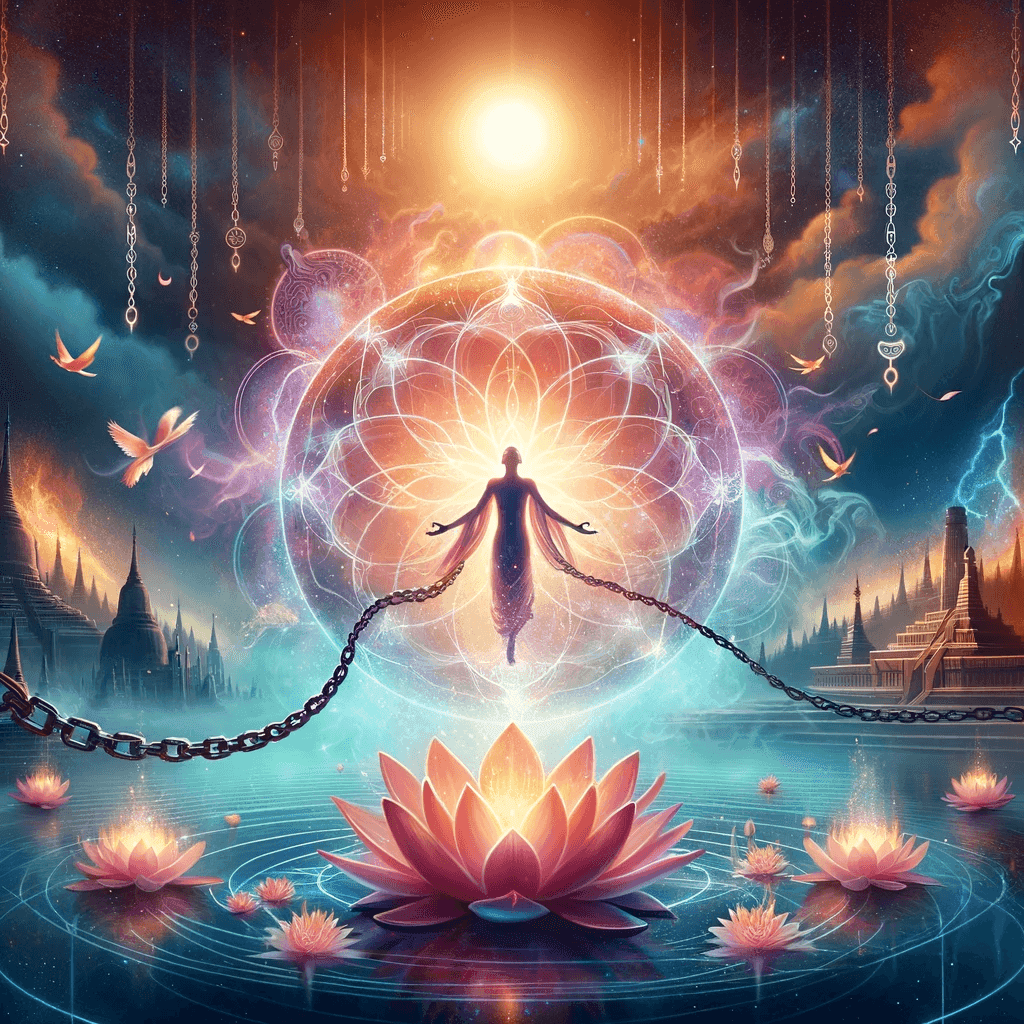Understanding Moksha in Sanatan Dharma
Sanatan Dharma, commonly known as Hinduism, often faces the misconception that its concept of moksha (liberation) is escapist, promoting detachment from worldly life. However, this interpretation overlooks the profound and nuanced teachings of Sanatan Dharma, where moksha is intricately linked with active engagement in life, ethical conduct, and self-realization.
Myths/Truths and Other Details

Misconception and Reality
The myth of moksha as an escapist goal likely arises from a limited understanding of Sanatan Dharma's comprehensive spiritual framework. Moksha, in its true essence, is not about withdrawal from the world but about transcending the limitations of ego and material attachment while actively participating in the world with a sense of higher purpose and understanding.
Moksha: A Multifaceted Goal
- Beyond Physical Existence: Moksha in Sanatan Dharma is the liberation from the cycle of birth and rebirth (samsara), achieved through the realization of one's true, eternal nature beyond the physical self.
- Integration with Daily Life: Far from advocating indifference, moksha encourages individuals to engage in their worldly duties (dharma) with a sense of detachment from personal gain, focusing on the greater good and ethical living.
The Four Purusharthas: Balancing Life Goals
- Dharma (Ethical Duty): Upholding righteousness and ethical responsibilities is central to Sanatan Dharma, forming the foundation for a balanced life.
- Artha (Material Prosperity): The pursuit of material success is acknowledged as a legitimate goal, provided it aligns with ethical principles and contributes to societal well-being.
- Kama (Desires and Pleasures): Enjoying life's pleasures is recognized as a natural human aspiration, but it should be pursued in harmony with moral values and not at the expense of spiritual growth.
- Moksha (Spiritual Liberation): Achieving liberation is the ultimate aim, but it is intricately connected to the fulfillment of worldly responsibilities and ethical conduct.
Ethical and Spiritual Dimensions
- Righteous Living: Sanatan Dharma advocates living a life of virtue, where actions are guided by moral and ethical considerations, contributing positively to society.
- Self-Realization: The journey towards moksha involves deep self-inquiry, leading to an understanding of one's true self beyond the ego and material attachments.
Contemporary Relevance
- Modern Interpretation: In today's context, moksha's teachings are interpreted as guiding principles for leading a meaningful, ethical, and balanced life, addressing both spiritual aspirations and worldly responsibilities.
- Global Perspective: The concept of moksha resonates with universal spiritual themes, emphasizing the interconnectedness of all life and the pursuit of higher consciousness.
...




